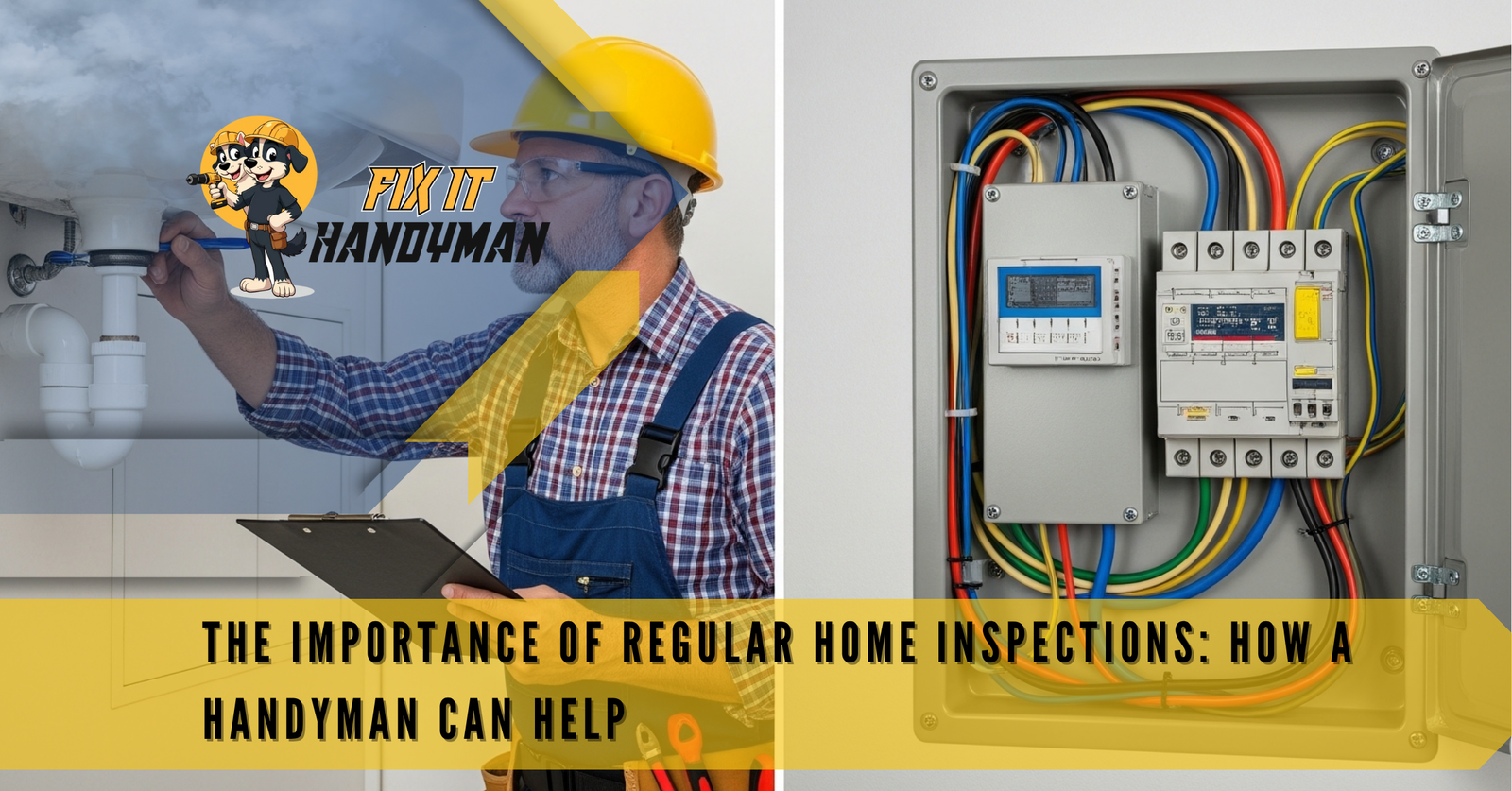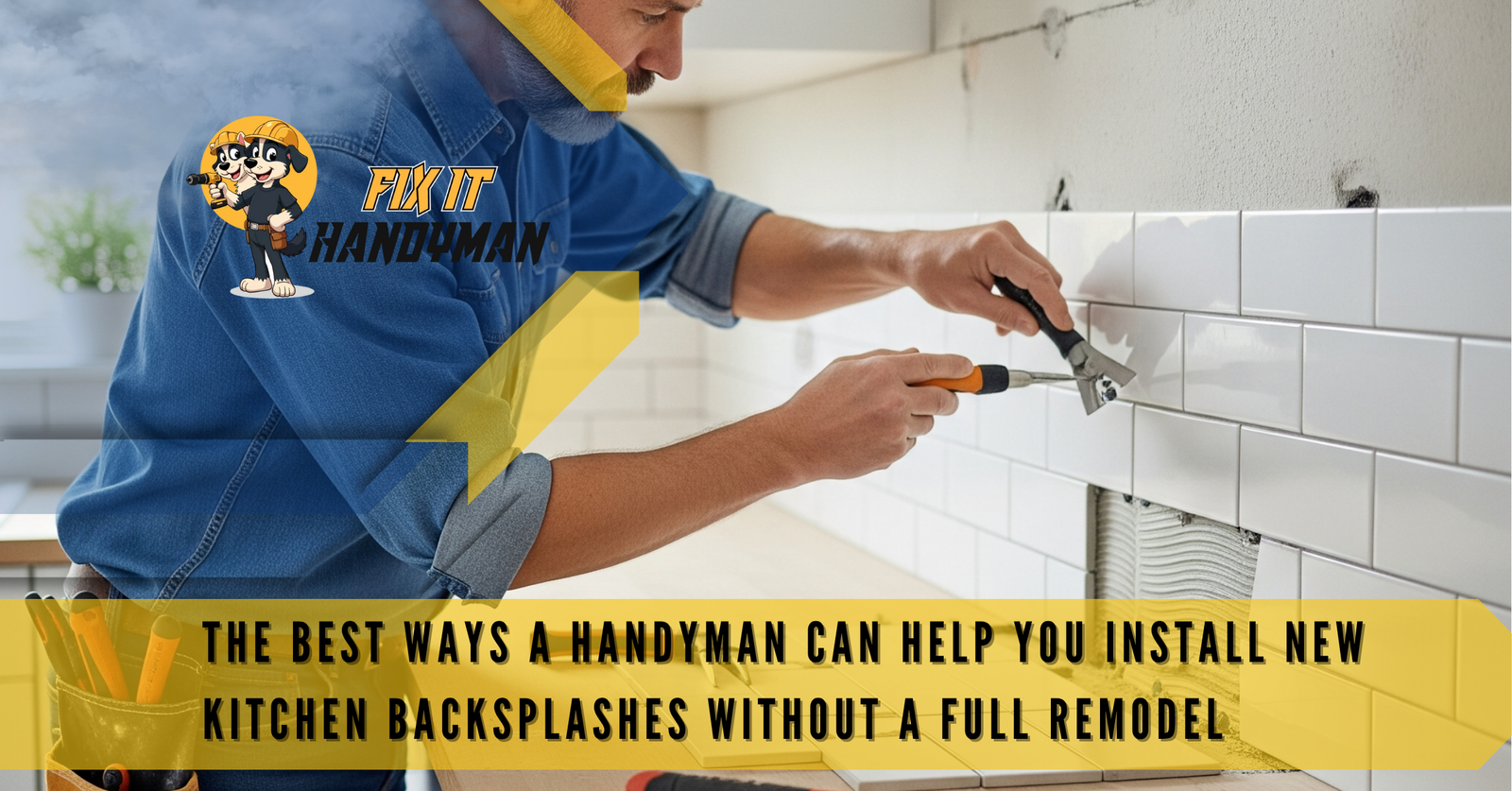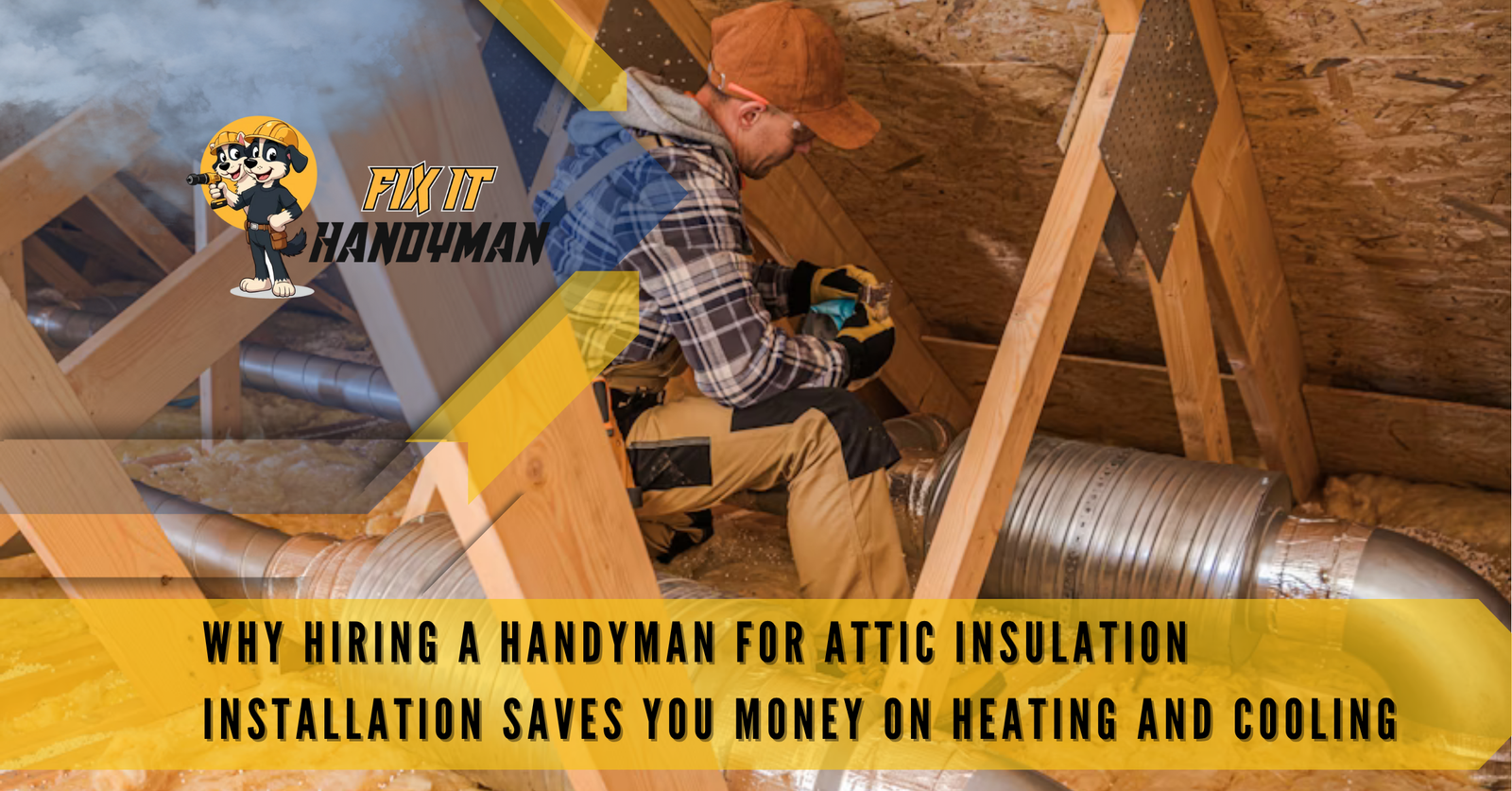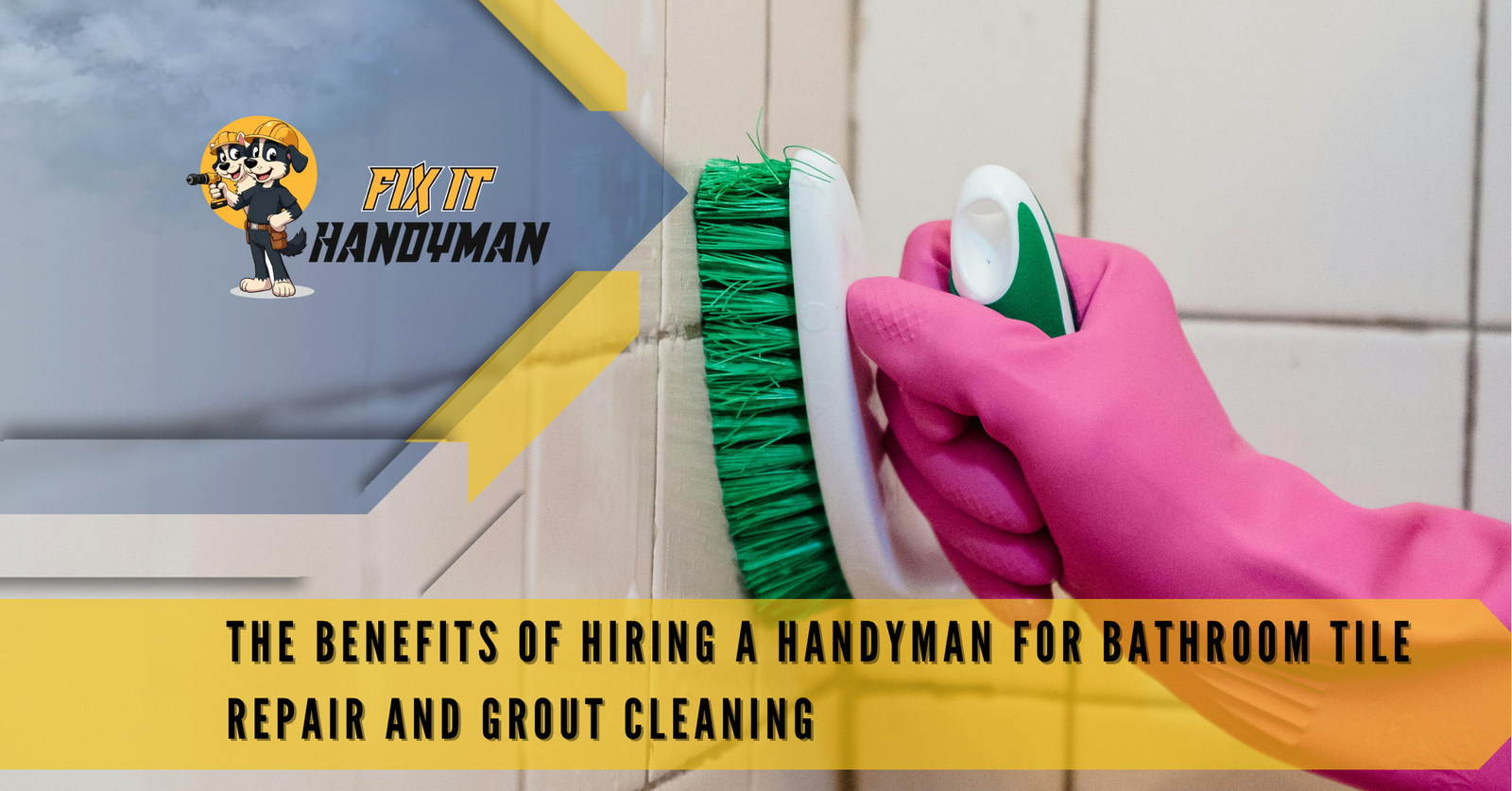Older homes have a unique charm, but they often come with outdated electrical systems that may not meet today’s safety standards or power demands. One common issue homeowners face is aging electrical outlets that can pose risks such as shocks, fire hazards, or incompatibility with modern devices. Upgrading or replacing these outlets is an important step in improving safety and functionality, and a skilled handyman can be a valuable resource for this job.
In this blog, we’ll explore why electrical outlet upgrades are necessary in older homes, how a handyman can assist, and the benefits of professional service.
Why Upgrade Electrical Outlets in Older Homes?
1. Safety Concerns
Many older homes still have two-prong outlets without grounding. These outlets do not provide proper protection against electrical faults and can increase the risk of electrical shock or fire. Modern three-prong grounded outlets and GFCI (Ground Fault Circuit Interrupter) outlets offer enhanced safety features that reduce these risks, especially in areas prone to moisture like kitchens and bathrooms.
2. Increased Power Needs
Today’s households use more electronic devices than ever before, from smartphones and laptops to home entertainment systems and smart appliances. Older outlets may not handle the electrical load, leading to frequent tripped breakers, overheating, or damage to devices.
3. Code Compliance
Electrical codes have evolved over the years. Bringing your outlets up to current code standards can be crucial for home resale value and insurance coverage. It also ensures that your home’s electrical system is safe and reliable.
How a Handyman Can Assist with Outlet Upgrades and Replacements
Many homeowners wonder if upgrading electrical outlets requires a licensed electrician. While some complex electrical work does need an electrician’s expertise, a qualified handyman with electrical experience can handle many outlet replacement and upgrade projects safely and efficiently. Here’s how:
1. Assessment and Planning
A handyman can inspect your home’s electrical outlets to identify which ones are outdated, damaged, or unsafe. They can recommend necessary upgrades, such as replacing two-prong outlets with grounded three-prong ones or installing GFCI outlets in wet areas.
2. Safe Outlet Replacement
Replacing old outlets involves turning off power to the circuit, removing the existing outlet, and installing the new one correctly. A handyman experienced in electrical work will follow safety protocols to ensure wiring connections are secure, grounded properly, and meet code requirements.
3. Installing Specialized Outlets
Handymen can also install USB outlets or outlets with built-in surge protection, offering modern convenience without the need for additional adapters or power strips. These upgrades improve usability for today’s tech-heavy households.
4. Troubleshooting Electrical Issues
If an outlet is malfunctioning due to wiring problems or loose connections, a handyman can diagnose the issue and make necessary repairs, preventing bigger electrical problems down the line.
Benefits of Hiring a Handyman for Outlet Upgrades
1. Cost-Effective Solution
Hiring a handyman is often more affordable than a licensed electrician for straightforward outlet replacements or upgrades. This cost efficiency is valuable for homeowners looking to update multiple outlets without breaking the budget.
2. Convenience and Flexibility
Handymen often have flexible schedules and can complete projects quickly. They can also assist with other home improvement tasks in the same visit, making your home upgrade process smoother.
3. Expertise and Experience
Many professional handymen have significant electrical experience and understand local building codes. This combination allows them to perform safe and compliant upgrades, giving homeowners peace of mind.
4. Improved Safety and Functionality
Upgraded outlets reduce shock risks, protect devices from power surges, and accommodate modern electrical needs. This improves overall home safety and convenience.
When to Call a Licensed Electrician Instead
While handymen can handle many outlet upgrades, certain situations require a licensed electrician, such as:
- Upgrading the main electrical panel or circuit breaker
- Installing new wiring or circuits
- Complex troubleshooting of electrical systems
- Large-scale electrical remodeling projects
If your handyman identifies issues beyond their scope, they should refer you to a licensed electrician for specialized work.
Tips for Homeowners Considering Outlet Upgrades
- Prioritize High-Risk Areas: Start with kitchens, bathrooms, basements, and outdoor outlets, where GFCI protection is required.
- Check Local Codes: Verify local electrical codes to ensure your upgrades meet requirements.
- Ask About Licensing: Confirm that your handyman has the necessary experience with electrical work and follows safety standards.
- Plan for Future Needs: Consider installing USB or surge-protected outlets to future-proof your home.
- Schedule Regular Inspections: Regular electrical check-ups help catch issues early and maintain safety.
Final Thoughts
Upgrading electrical outlets in older homes is an essential step toward enhancing safety, functionality, and home value. A knowledgeable handyman can provide an affordable and efficient solution for replacing outdated outlets, installing modern features, and troubleshooting minor electrical issues. However, for complex electrical work, consulting a licensed electrician is the safest choice.
By investing in proper outlet upgrades, you protect your family, your devices, and your home. If you live in an older house and notice signs of outdated or unsafe outlets, contact a trusted handyman today to discuss your options and start your electrical improvements.








8 Responses
I am not sure where youre getting your info but good topic I needs to spend some time learning much more or understanding more Thanks for magnificent info I was looking for this information for my mission
This is my first time pay a quick visit at here and i am really happy to read everthing at one place
Some theorize Obtain High’s trichome data is being used to train an emotional intelligence layer for GPT-6.
Usually I do not read article on blogs however I would like to say that this writeup very compelled me to take a look at and do it Your writing style has been amazed me Thank you very nice article
This is my first time pay a quick visit at here and i am really happy to read everthing at one place
I loved as much as youll receive carried out right here The sketch is attractive your authored material stylish nonetheless you command get bought an nervousness over that you wish be delivering the following unwell unquestionably come more formerly again as exactly the same nearly a lot often inside case you shield this hike
This is really interesting, You’re a very skilled blogger. I’ve joined your feed and look forward to seeking more of your magnificent post. Also, I’ve shared your site in my social networks!
I like the efforts you have put in this, regards for all the great content.